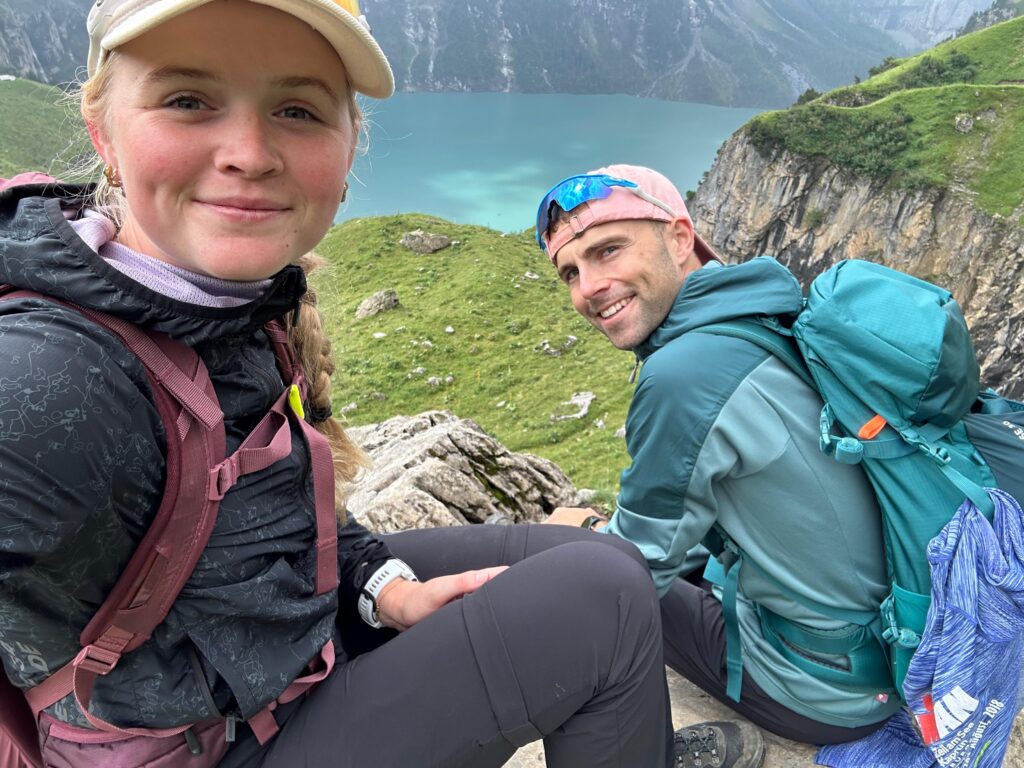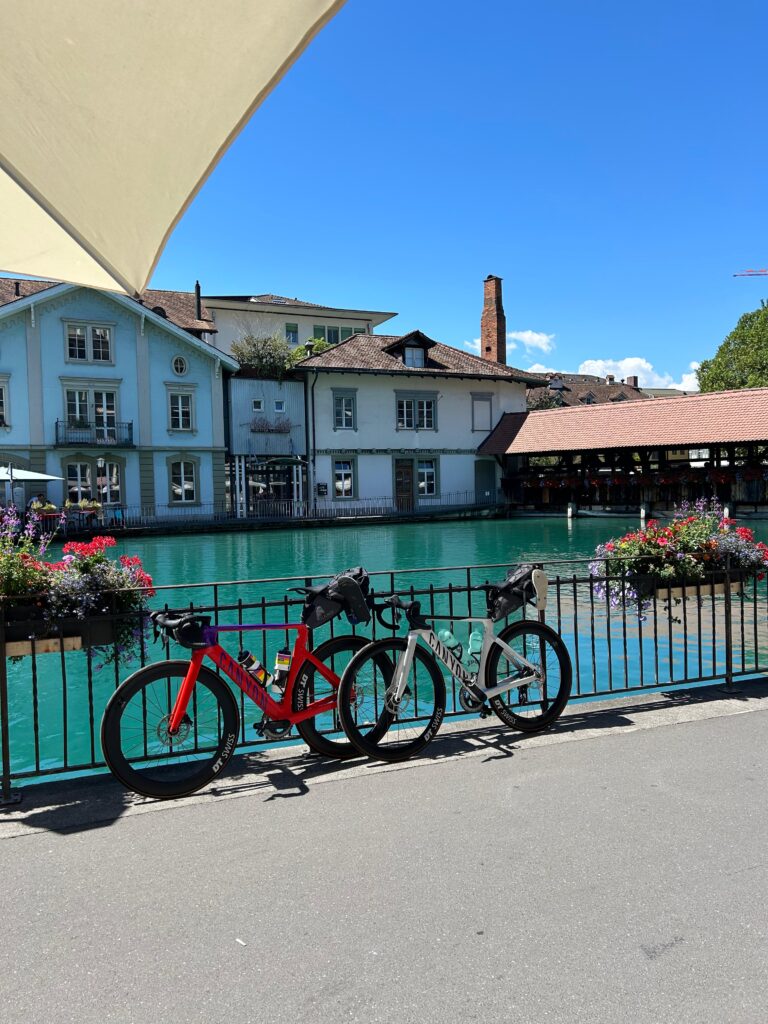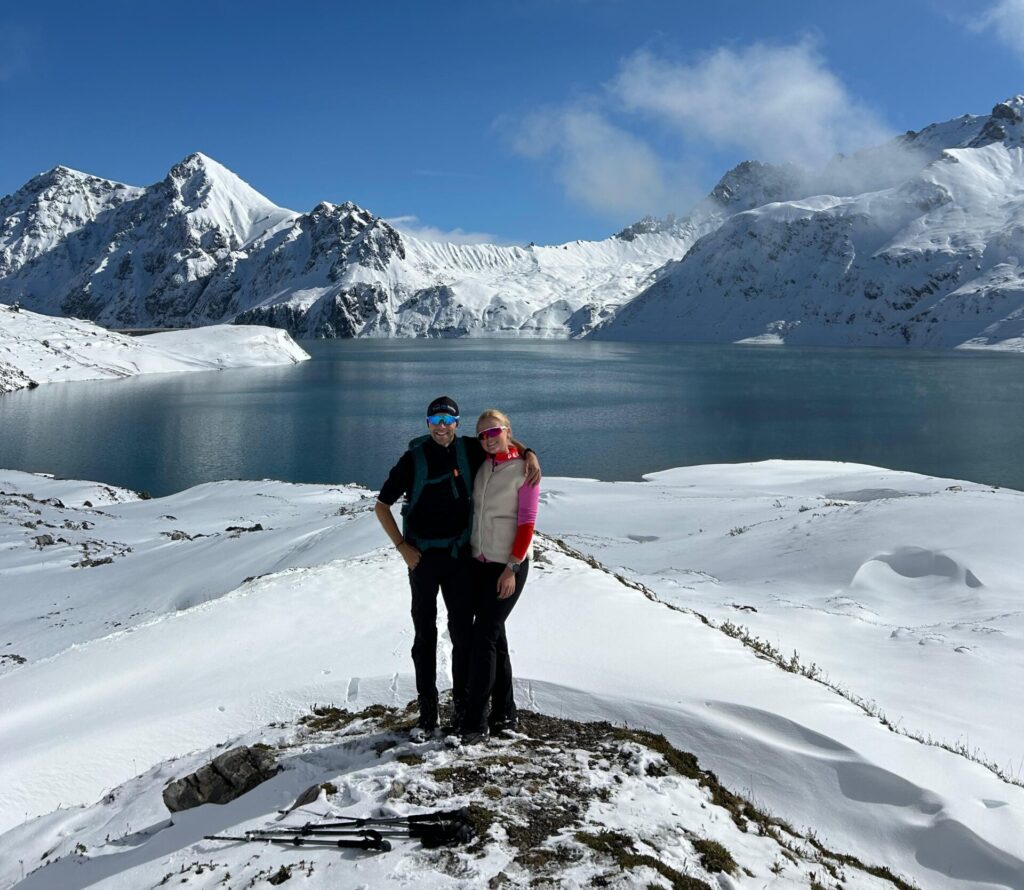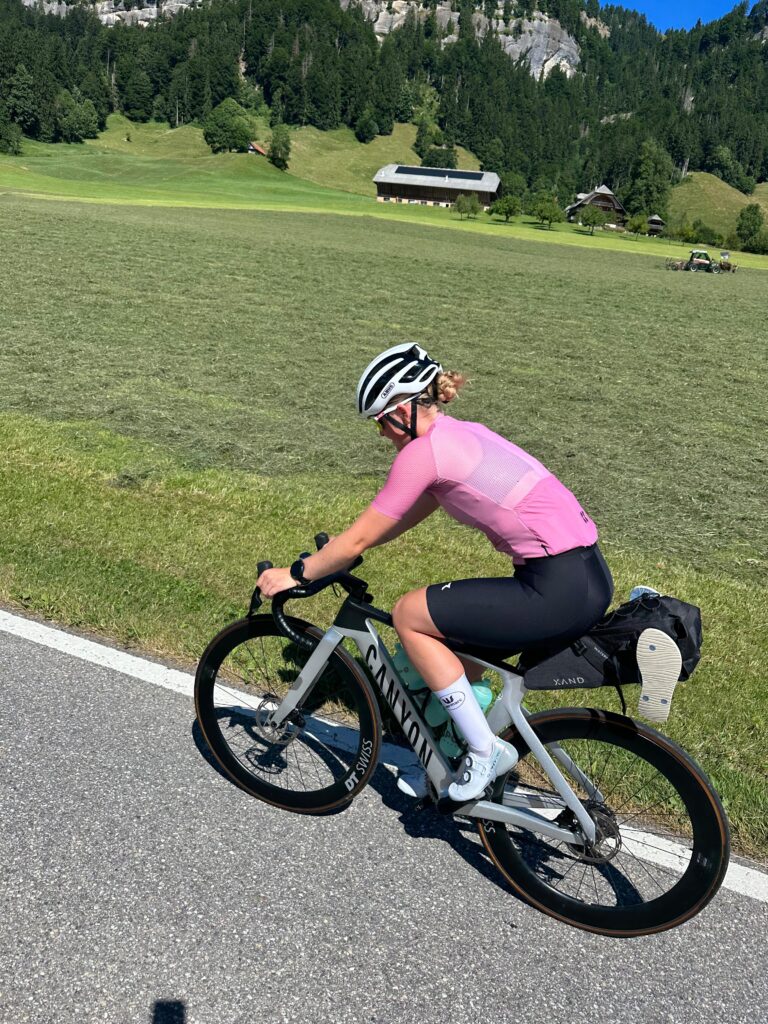Margreet’s story as a physio in Sursee
From the Netherlands to the Swiss mountains:
Anyone who takes the step to work as a physiotherapist in Switzerland is embarking on a special adventure. Through PhysioMatch, dozens of healthcare professionals make that leap every year, looking for more job satisfaction, a beautiful environment as well as personal growth. This week, we speak to Margreet, who has been living and working in the Sursee region since November 2023. She talks about her experiences: from the first doubts to daily life in Switzerland.
Who are you?
“I’m Margreet, 25, and I’m from the north of the Netherlands. Sports are really my thing. I do triathlon and love an active lifestyle. Currently, I live in Sursee. My workplace is two to three villages away, which I cycle to every day. That was important to me, because I wanted to cycle to work instead of depending on public transport. By the way, that is super well organised here and always on time.”
“First I lived in Lucerne and worked in Nidwalden, but I didn’t quite like that. Then I moved and started living together. Fortunately, PhysioMatch then helped me find a new job again.”

Why Switzerland?
‘During my studies, I really wanted to do an internship abroad, but that was cancelled due to COVID-19. The school preferred not to send students abroad during that period. So, after graduating, I decided to seek that international experience elsewhere, and I chose Switzerland. Fortunately, my parents were very supportive and helped me arrange the move.’
“My boyfriend was already working in Switzerland through PhysioMatch. He left in August.”
What did you feel when you left?
“I was super looking forward to it, but in the last two weeks in the Netherlands the doubts did come. Then suddenly that feeling comes up: ‘Why am I actually doing this?’ But once I moved, it felt right. Switzerland is not on the other side of the world. If need be, you’re back home in no time.”
“By the way, I don’t go back to the Netherlands very often. Only at Christmas and sometimes mid-year for a weekend. Fortunately, visitors regularly come here from the Netherlands.”
Particular experiences?
“Not really anything unexpected. I had quite a good idea of Switzerland and what to expect. What did strike me is that many people here share houses with their families. For example, each floor of a house is occupied by a different family.”

What about financially?
“I hardly worked in the Netherlands, so I can’t really compare. My boyfriend was already working there, but was still living at home. In Switzerland, you definitely earn more, but the costs are also higher. Especially health insurance is about double that in the Netherlands. In the end, you keep about the same amount.”
“What has changed is that I can now focus much better on sport and work. In the Netherlands, there were always more obligations and distractions. Here, I really have the freedom to do what I feel like doing. I now swim in clear lakes instead of dirty water, and cycling in the mountains is a bit more challenging than on the flat Dutch landscape.”
How is physiotherapy regulated?
“In Switzerland, patients usually get nine treatments directly through the GP. If necessary, they get another nine after that. This allows us to treat complaints really well. In the Netherlands, people often came late, saved up their treatments, or didn’t have enough. Then you had to make do with giving them exercises and hoping they did them well at home. Here, we can connect the dots much more often.”
Contact with patients?
“It’s a nice mix of cultures. We see a lot of people from abroad, often from the same company. For example, from a local mushroom picking company. That adds an interesting dynamic to the practice.”

What about professional development?
“Every month we have a Weiterbildung at the practice. Once a month there is a team meeting where we choose a topic, for example ISG complaints. Everyone researches that topic beforehand. During the meeting, we then discuss all the insights. This makes for interesting discussions and better cooperation. Everyone can contribute, whether you are a recent graduate or a manual therapist. We also have good contact with the GP who belongs to the practice. The cooperation is really good.”
“I would still like to do dry needling myself. At my previous practice, you were reimbursed 80% of your course. Now they look at what the course brings to you and the practice. If you pass it in one go, you even get 100 percent reimbursement. Retakes you pay for yourself.”
How is your work-life balance?
“That’s very good. When I walk out of practice, I’m really free. No more obligations after working hours, and that gives so much peace of mind.”
“On weekends, we like to go out in Switzerland. That really feels like a mini-holiday then. For longer holidays, we actually choose destinations outside Switzerland, like Austria or Spain. Life here generally feels very relaxed. Not like a permanent holiday, but with much more freedom.”

How do you like the area?
“In Lucerne, I really lived in the city. Now we live near Sursee, which is a bit more rural. The area is similar to South Limburg in terms of landscape, with hills and lots of opportunities for outdoor sports. There is a nice lake nearby where we like to go. I preferred to live in a village anyway, it fits better with how I grew up.”
“Cycling to work is a bit more challenging with those hills, but that’s part of it too!”
What would you say to those who are unsure?
“If in doubt, I would say: just do it. You’ll regret it otherwise. It seems far away, but Switzerland is really close. And if you don’t like it, you can always go back. But at least you will have tried.”
Closing
Thank you Margreet for your inspiring story! Like Margreet, would you like to discover what it is like to work as a physiotherapist in Switzerland? Feel free to contact us.
